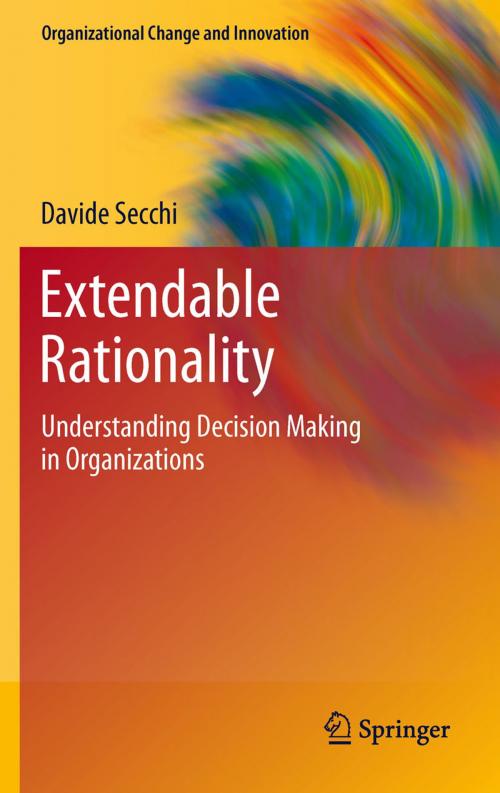Extendable Rationality
Understanding Decision Making in Organizations
Nonfiction, Health & Well Being, Psychology, Occupational & Industrial Psychology, Business & Finance, Management & Leadership, Planning & Forecasting| Author: | Davide Secchi | ISBN: | 9781441975423 |
| Publisher: | Springer New York | Publication: | October 20, 2010 |
| Imprint: | Springer | Language: | English |
| Author: | Davide Secchi |
| ISBN: | 9781441975423 |
| Publisher: | Springer New York |
| Publication: | October 20, 2010 |
| Imprint: | Springer |
| Language: | English |
“How do people make decisions in organizations?” is the question at the core of this book. Do people act rationally? Under what conditions can information and knowledge be shared to improve decision making? Davide Secchi applies concepts and theories from cognitive science, organizational behavior, and social psychology to explore the dynamics of decision making. In particular, he integrates “bounded rationality” (people are only partly rational; they have (a) limited computational capabilities and (b) limited access to information) and “distributed cognition” (knowledge is not confined to an individual, but is distributed across the members of a group) to build upon the pioneering work of Herbert Simon (1916-2001) on rational decision making and contribute fresh insights. This book is divided into two parts. The first part (Chapters 2 to 5) explores how recent studies on biases, prospect theory, heuristics, and emotions provide the so-called “map” of bounded rationality. The second part (Chapter 6 to 8) presents the idea of extendable rationality. In this section, Secchi identifies the limitations of bounded rationality and focuses more heavily on socially-based decision processes and the role of “docility” in teaching, managing, and executing decisions in organizations. The practical implications extend broadly to issues relating to change and innovation, as organizations adapt to evolving market conditions, implementing new systems, and effectively managing limited resources. The final chapter outlines an agenda for future research to help understand the decision making characteristics and capabilities of an organization.
“How do people make decisions in organizations?” is the question at the core of this book. Do people act rationally? Under what conditions can information and knowledge be shared to improve decision making? Davide Secchi applies concepts and theories from cognitive science, organizational behavior, and social psychology to explore the dynamics of decision making. In particular, he integrates “bounded rationality” (people are only partly rational; they have (a) limited computational capabilities and (b) limited access to information) and “distributed cognition” (knowledge is not confined to an individual, but is distributed across the members of a group) to build upon the pioneering work of Herbert Simon (1916-2001) on rational decision making and contribute fresh insights. This book is divided into two parts. The first part (Chapters 2 to 5) explores how recent studies on biases, prospect theory, heuristics, and emotions provide the so-called “map” of bounded rationality. The second part (Chapter 6 to 8) presents the idea of extendable rationality. In this section, Secchi identifies the limitations of bounded rationality and focuses more heavily on socially-based decision processes and the role of “docility” in teaching, managing, and executing decisions in organizations. The practical implications extend broadly to issues relating to change and innovation, as organizations adapt to evolving market conditions, implementing new systems, and effectively managing limited resources. The final chapter outlines an agenda for future research to help understand the decision making characteristics and capabilities of an organization.















